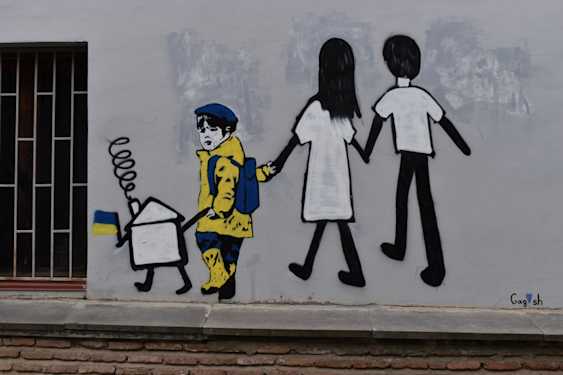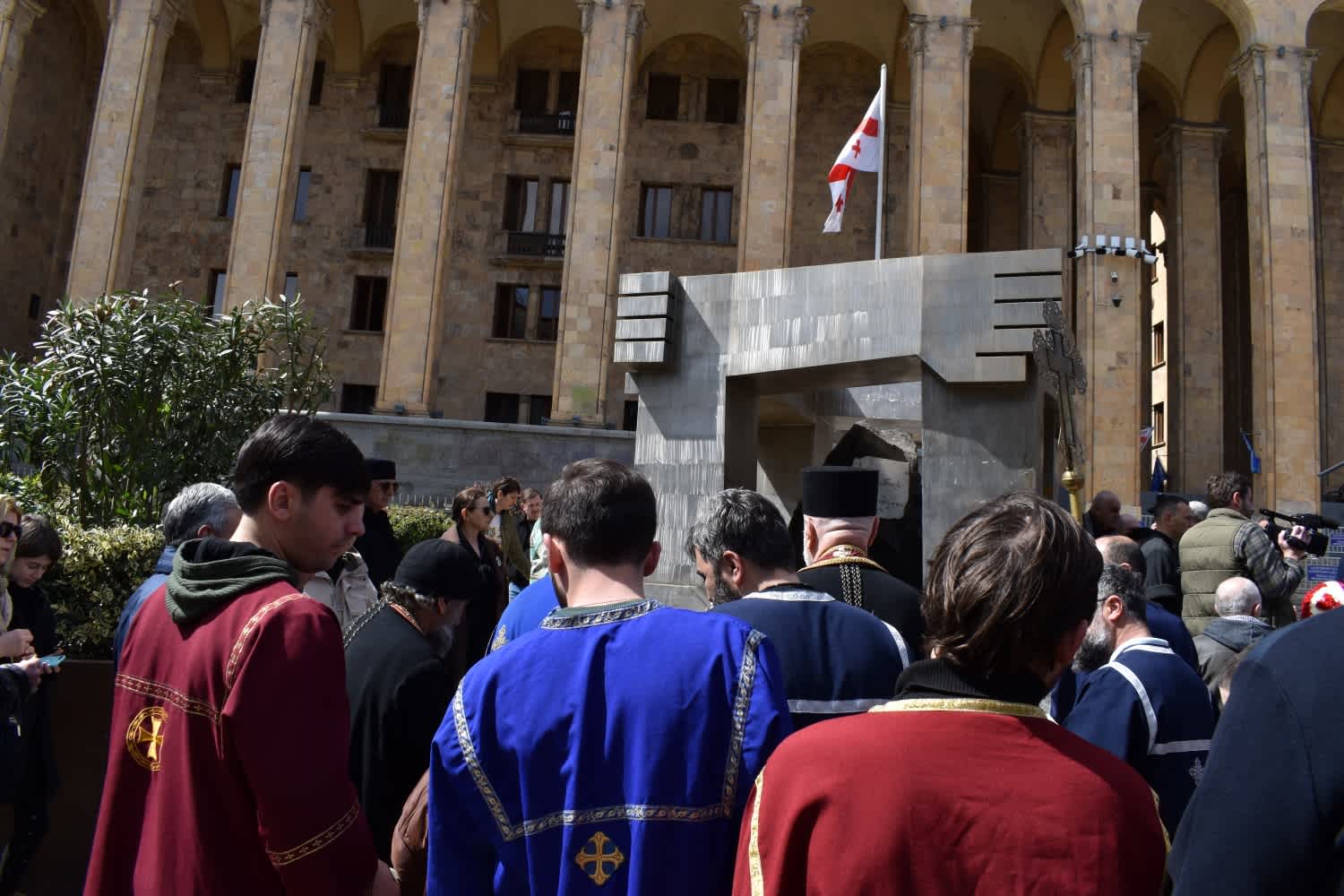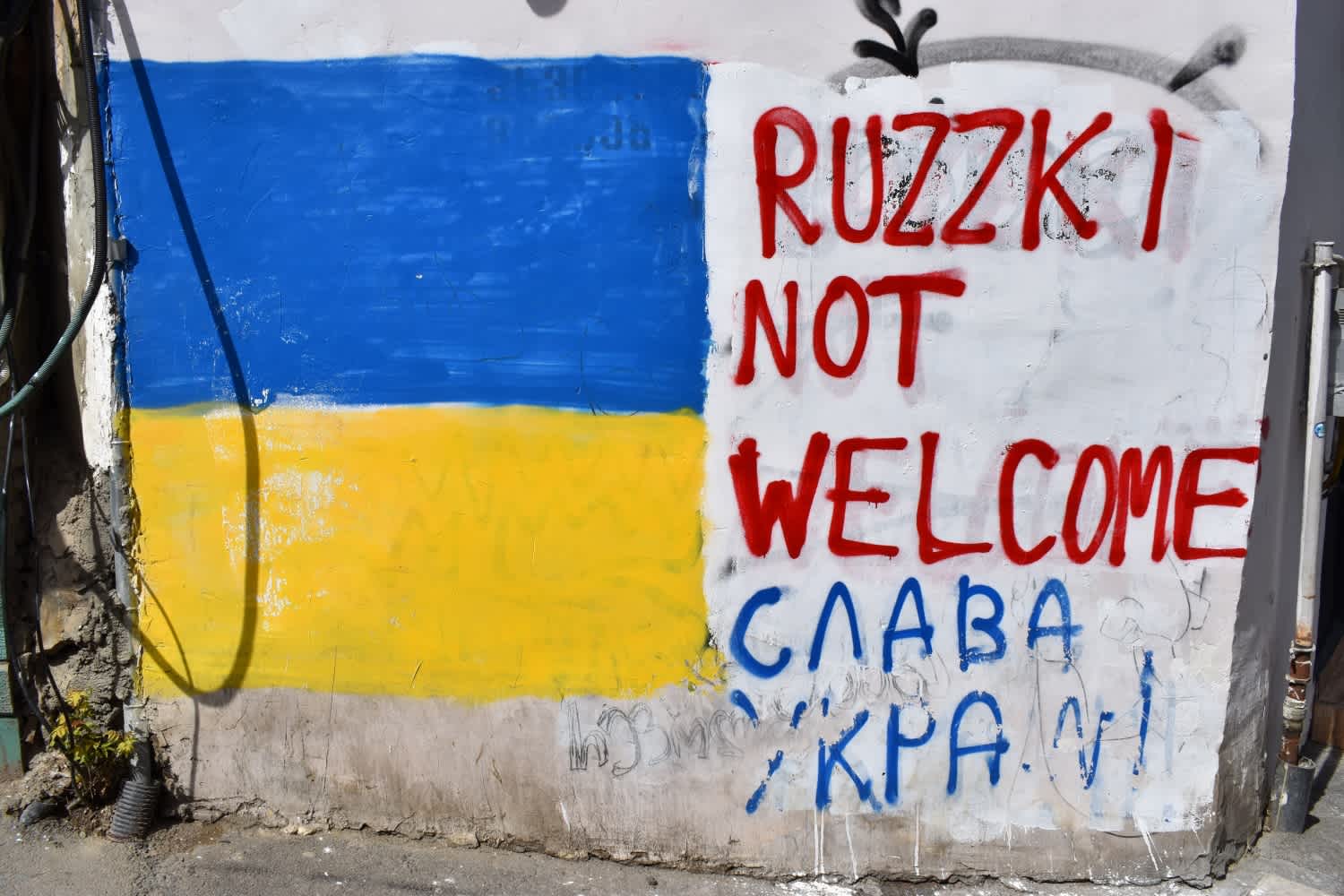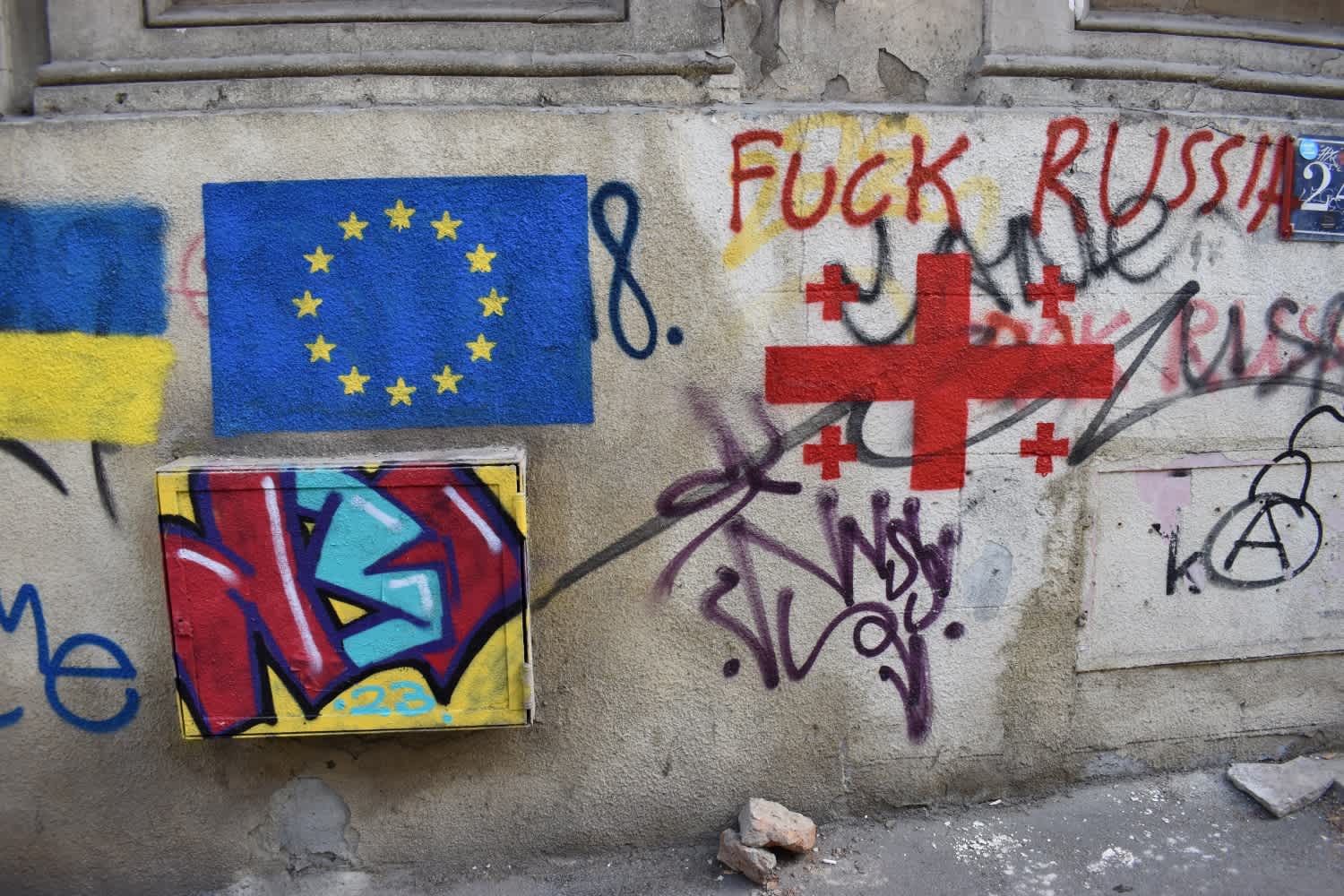
A Georgian dream
Dispatches from Tbilisi
It is April 9th 2023, Georgia's Day of National Unity. The anniversary of the 1989 Tbilisi Massacre, when the Soviet Army dispersed an anti-Soviet, pro-independence demonstration on Rustaveli Avenue, resulting in twenty-one deaths, hundreds of injuries, and many more arrests.
Incense hangs in the air as a gaggle of priests presides over the commemoration in front of parliament. A huddle of brawn security officers jostles to protect the assorted dignitaries as journalists scramble for the best vantage point. There is both calm and commotion, reflection and restlessness.

That same evening, young people bearing Georgian, Ukrainian, and EU flags convene on the same spot to chant proclamations of a European future. They make their voices heard, even if very few elected representatives are there to listen.
There is a tangible sense of frustration, a manifest impatience amongst those who have already experienced radical change in their lifetime and now long for the technical, bureaucratic nature of EU accession.
War in Ukraine has only heightened the sense of angst about Russian influence. The streets are decorated with Ukrainian flags and 'Slava Ukraini!' proclamations. One restaurant explicitly states that by entering, one agrees that ‘Putin is a war criminal’ and respects the ‘territorial integrity of Georgia, Ukraine, and Moldova’.

This is more than an expression of solidarity. If Ukraine falls, many Georgians fear they will be next. Our guide, himself displaced from Abkhazia, speaks with great pride about his countrymen risking their lives to repel the Russians. He estimates their number to be some three thousand or so by Spring 2023, and hints that many lives have already been mourned.
Georgia remains in Moscow’s purview, in more ways than one. Several hundred thousand Russians have fled here, many bringing considerable investment, the origins of which appear to concern few, especially to Batumi on the Black Sea coast.
On Georgia’s mountainous border in the north, past Mount Kazbegi, a seemingly endless flow of trucks bundle their way through snow and ice toward their final destination. Trade here is undiminished by war; on the contrary, there are new routes for luxury goods. Various forms of wealth continue to transcend borders, no matter how challenging their geographies.

It is now over fifteen years since Georgia’s brief war with Russia. Despite lasting only five days, its legacies run deep. Moscow’s support for Abkhazian and South Ossetian independence accounts for almost twenty percent of Georgian territory. The demarcations frequently change, encroaching upon and disturbing the lives of those in sight of the barbed wire.
South Ossetia is a stone’s throw away from the highway passing the town of Gori, the birthplace of Stalin and home to a museum dedicated to his notorious legacy. Here the appeal of the strong man continues to resonate for some, no matter the lessons of history.
And Georgia’s history is as weighty as its cuisine. The past is not only close behind but ever-present. The 'Never back to the USSR' graffiti is not an affront to The Beatles, but a manifestation of lived reality; a desire for change and a new course.
Back in Tbilisi, the yellow stars of the EU shine brightly. The expectations raised by Brussels’ promises will only be dampened by age, if the experience of the Western Balkans is anything to go by. Those more sober souls have already factored in the prospect of disappointment; though that is not to say that they won’t go on fighting, for there is little to be lost.
The feasibility of EU membership while Russia occupies Georgian territory remains a subject of considerable debate, so too whether talks with Europe will proceed in good faith while Georgia lacks full control over its territory. The EU has negotiated complexity of its own in Cyprus, Northern Ireland, and elsewhere, and should not hinder Georgia’s ambitions if they are deemed genuine.
There are, and will be, other factors that hinder Georgia’s progress on its European path. Attempts to enact a law requiring organizations receiving more than twenty percent of funding from overseas sources to register as foreign agents - the so-called 'Russian law' - brought thousands of demonstrators to the streets of Georgia’s capital, Tbilisi, as ‘Ode to Joy’ rang out. Their efforts were successful, at least in the first instance.
Flirtations with Moscow are unlikely to cease. While some aspire for Georgia to join NATO, others such as Irakli Garibashvili, Georgia’s prime minister from February 2021 until January 2024, publicly blamed Russia’s war in Ukraine on the latter’s desire to join NATO.
Having secured EU Candidate Status towards the end of last year, the Georgian authorities again introduced the foreign agent law into parliamentary procedure. And again tens of thousands of protesters are taking to the streets despite heavy-handed policing. The sight of throngs of Georgians standing up against the authorities is simply staggering. The depth of resentment is such that Georgia is beginning to bear all the hallmarks of another colour or flower Revolution; mobilisations of discontent to liberate the country once more.
Georgia is weaving a path of Kremlin-inspired paralysis. And as it seemingly draws closer to the EU, pushbacks, and rejections will become more manifest. The extent to which those dedicated to a European future will sustain their protests remains to be seen. But there is a profound Georgian dream, but it is not being articulated by those who have claimed this very mantle.
Georgia may be tangential to Europe’s future but it boasts tangents that can benefit the Union. It is imperative that today’s Georgia, even deprived of part of its territory, be put firmly on the path to a Europe whole and free. For Europe to turn its back on Georgia would be to betray those who still believe that revolutionary change is possible, including the revolutionary change brought about by accession. The dream must be kept alive.
Ian Bancroft is the author of ‘Dragon’s teeth - tales from north Kosovo’ and ‘Luka'.
Ian is a writer based in the Balkans. He is the author of 'Dragon's Teeth - Tales from North Kosovo' and 'Luka'. Follow Ian on Twitter @bancroftian.
Currently in: Belgrade, Serbia — @bancroftian
